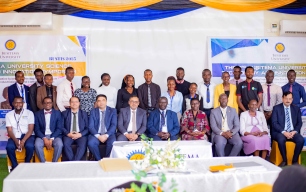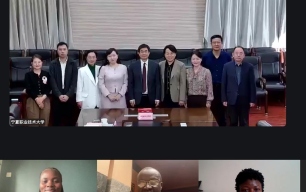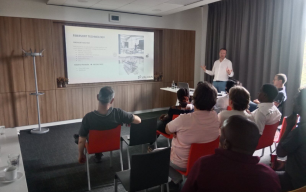Transforming Waste into Livestock Feed: Busitema University Concludes Black Soldier Fly Farming Project
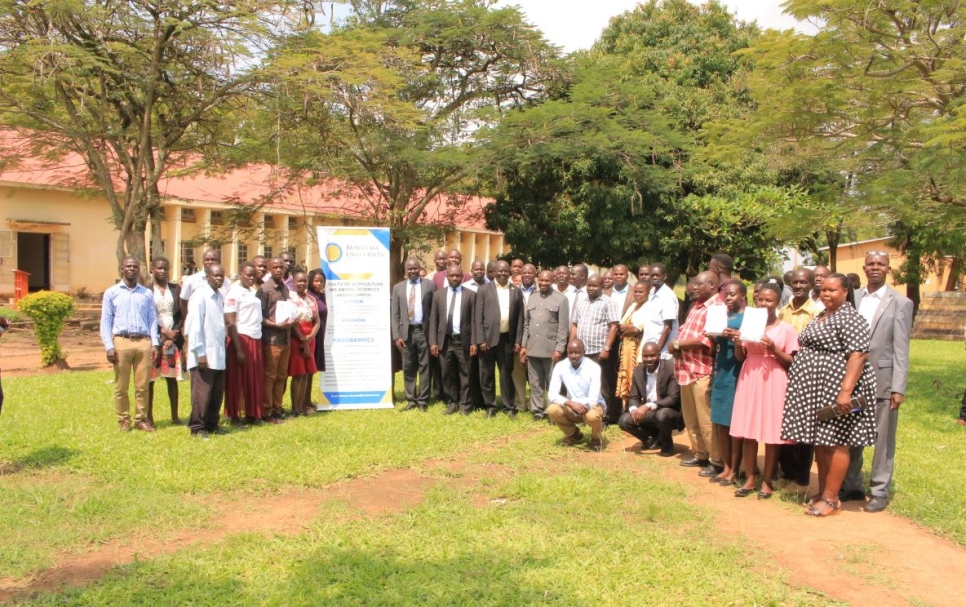
Busitema University’s Faculty of Agriculture and Animal Sciences (FAAS) has successfully concluded its flagship project titled “Commercialising Black Soldier Fly (BSF) Farming for Livestock Feed and Organic Waste Recycling” in Tororo and Soroti. The result dissemination and project close-out event took place on 24th July at Busitema Arapai Campus in Soroti City, marked by optimism, strong stakeholder engagement, and a renewed call for innovation in Uganda’s agricultural sector.
The workshop was attended by Eng. Dr. Joseph L. Ddumba, Acting Deputy Vice Chancellor for Finance and Administration and Dean of the Faculty of Engineering and Technology, who represented the Vice Chancellor. Also in attendance were Soroti District leaders (both political and technical), the project team, faculty staff, BSF farmers, and students.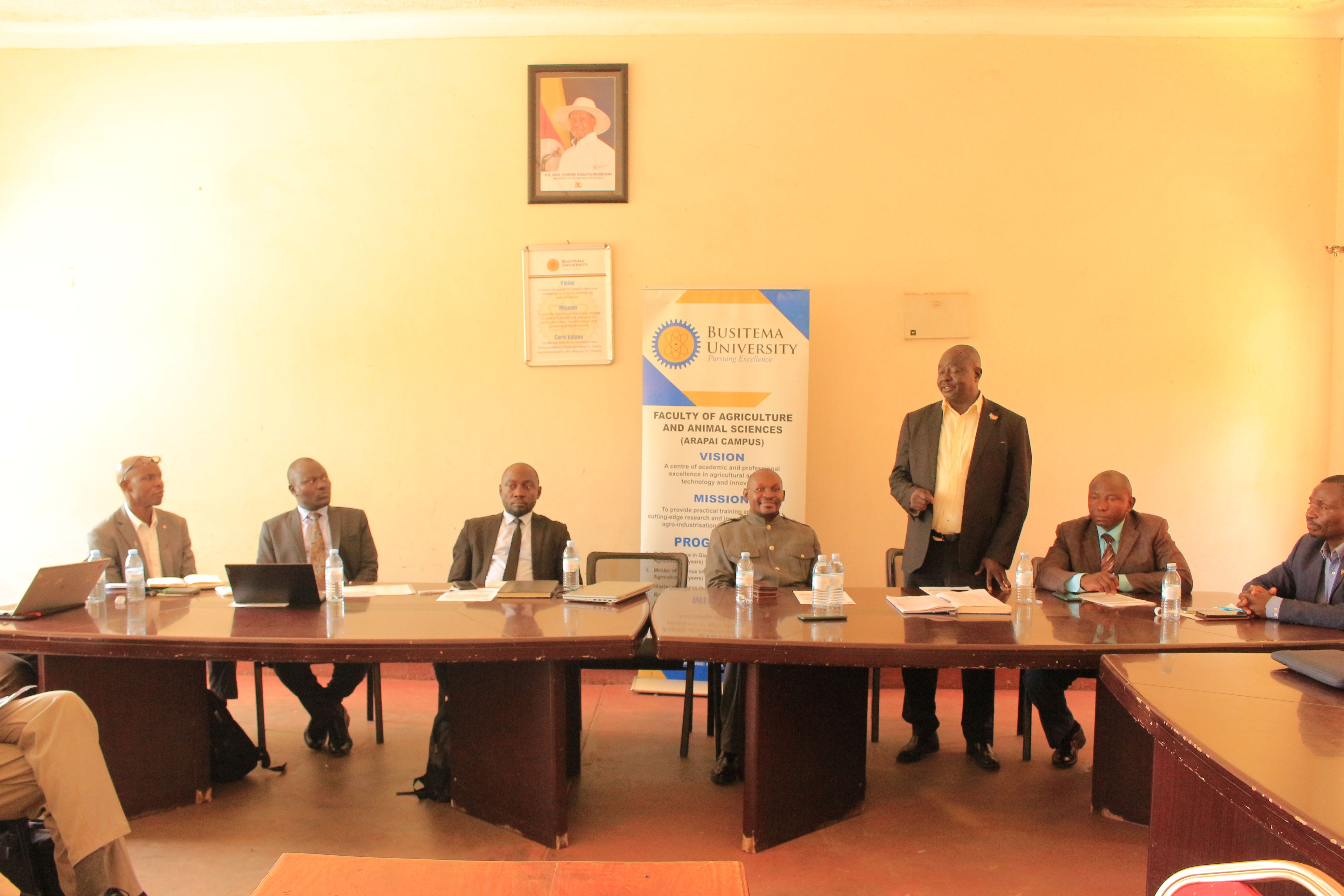
Key stakeholders and dignitaries at the BSF project close-out and dissemination workshop
In his welcome remarks, Prof. James P. Egonyu, Dean of the Faculty of Agriculture and Animal Sciences, expressed gratitude to all dignitaries and stakeholders for their presence. He highlighted the Faculty’s strategic role as a centre of academic and professional excellence in agricultural sciences, technology, and innovation. Prof. Egonyu reaffirmed FAAS’s mission: “To provide practical training and conduct cutting-edge research and innovation for catalysing agro-industrialisation and entrepreneurship.”
He noted that the Faculty currently offers nine academic programmes, ranging from Doctoral to Certificate levels across three academic departments. FAAS is implementing 11 key research and development projects, including the BSF initiative, cricket mass rearing for food and nutrition security, and BSF introduction projects in Arua City.
In the 2024/25 academic year alone, faculty staff produced 19 scientific outputs, maintained national and international partnerships, conducted industrial research with the private sector, and engaged actively in community outreach.
Representing the Vice Chancellor, Eng. Dr. Joseph Ddumba reaffirmed the University’s strong support for the BSF initiative. He conveyed the Vice Chancellor’s appreciation to district leaders and farmers for their collaboration and thanked the BSF Research Team for their integrity and professionalism: “You have been entrusted with funds and utilized them effectively. This is commendable.” Dr. Ddumba urged the team to leverage the dissemination event to mobilize additional resources, promote the products, and ensure the sustainability of the initiative. He also announced that the Faculty had received funding for infrastructure development and encouraged the Dean to begin implementation immediately.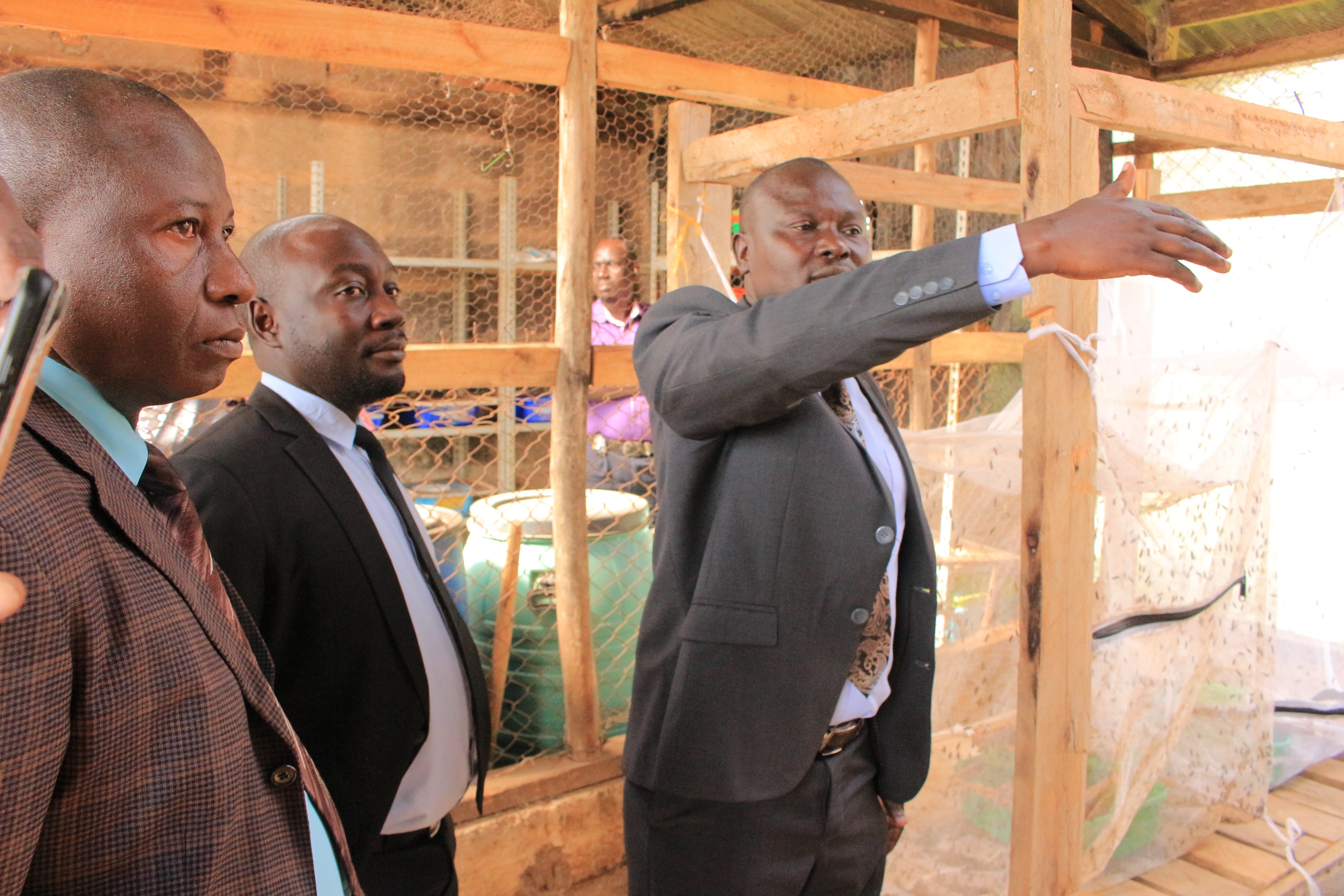
Eng. Dr. Joseph Ddumba inspecting the BSF facility at FAAS
Highlighting strategic partnerships, he mentioned a collaboration with the Uganda Development Bank (UDB) to construct a hotel at Pallisa Campus and student accommodations at all campuses. He noted that as student enrollment increases, Faculty Deans would be expected to mobilize funding and address staffing needs.
He concluded by commending faculty members for their resilience and commitment, stating: “Let us continue being problem solvers. It is now my honour to declare this workshop officially open.”
Representing the Directorate of Graduate Studies, Research, and Innovations, Mr. Ndamanywa Kalisiti, Principal Research Officer, highlighted Busitema University’s strategic focus on Science, Technology, and Innovation (STI). He outlined four key pillars of the STI strategy: Interdisciplinary research collaborations among academia, industry, and government, Capacity building through enhanced infrastructure and skills development, Innovation incubation to support research commercialization and Community engagement to ensure that research addresses local needs.
Mr. Kalisiti described the Soldier Fly Project as a high-impact initiative, selected through a competitive funding process in FY2023/24. He praised the project team for their commitment and emphasized Busitema University's ambition to become a national STI hub.
Presenting the end-of-project report, Prof. Egonyu detailed the project’s numerous accomplishments: Establishment of BSF rearing facilities at the Faculty of Agriculture and Animal Sciences and the Faculty of Science and Education, Training of 289 farmers from 54 districts, with 4 farmers adopting BSF farming, Research engagement by 5 students and training of 2 professional staff, Product development of BUINFERTZ, a BSF-based agricultural input, Evaluation of BSF larvae performance on local organic substrates and frass application on vegetable crops and Extensive community outreach and international exchange visits.
He concluded by stating that the project had exceeded its targets and showcased the transformative potential of BSF technology in advancing circular food systems. He stressed the importance of integrating research with commercialization for long-term impact.
- 156 views

